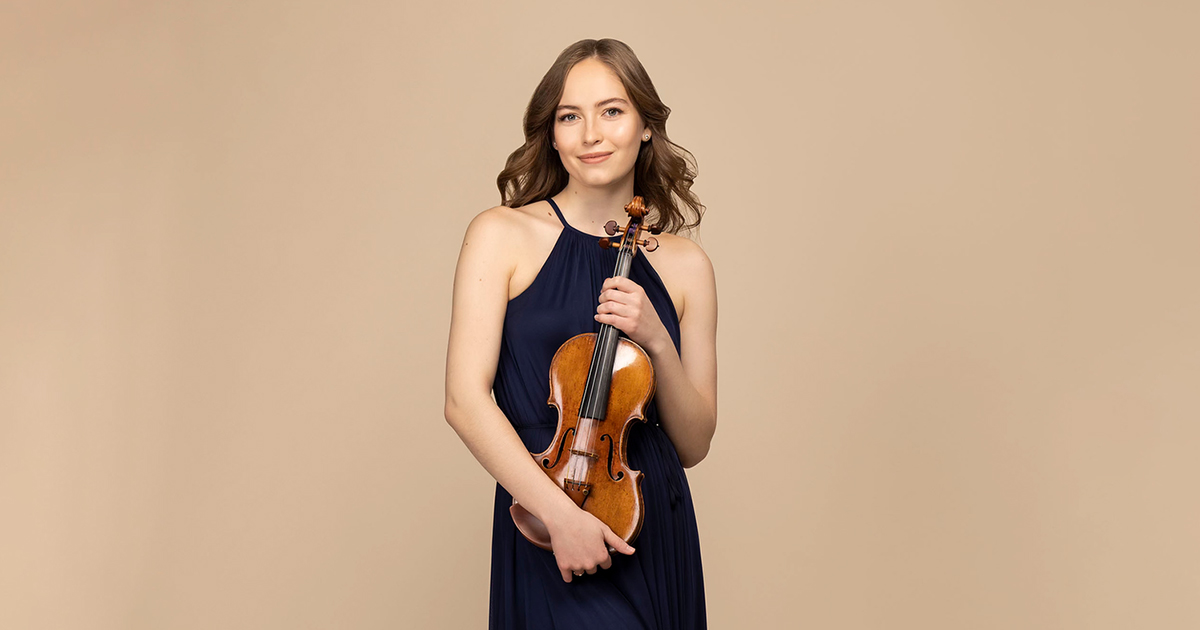Some of us are old enough to remember the 1983 Wimbledon singles finals when unseeded Chris Lewis was matched against the formidable – and definitely seeded – John McEnroe. And while McEnroe prevailed, Lewis had an underdog moment that was not soon forgotten.
In a tennis family where Lewis’ two brothers were also pros, it’s not surprising that daughter Geneva Lewis would excel at the sport. What is surprising is that she replaced her racket for a violin. And her career rise in the classical music world has been no less stunning than that of her father’s in the sports arena.
Concert violinists can accomplish a great deal at a ridiculously young age and Lewis is no exception. Since her solo debut at age 11 with the Pasadena POPS, Lewis has performed in recital at Wigmore Hall, with the Orpheus Chamber Orchestra, and the Philadelphia Chamber Music Society, as well as the orchestras/symphonies of Pasadena, Sarasota, Pensacola, Auckland, North Carolina, Augusta, Kansas City, Austin, Virginia, BBC Scottish, and Arkansas. She is also a recipient of the 2022 Borletti-Buitoni Trust Award, the 2021 Avery Fisher Career Grant, and the Grand Prize winner of the 2020 Concert Artists Guild Competition.
Lewis will appear with the Knoxville Symphony Orchestra on February 22 and 23 performing one of the most beloved concertos of all time – the tour de force by Ludwig van Beethoven. Notably, Beethoven wrote only one violin concerto, and this majestic work is a mainstay in the repertoire. Famed violinist Joseph Joachim once wrote that of the four iconic German violin concertos (the others being written by Brahms, Bruch, and Mendelssohn), Beethoven’s was “the greatest, most uncompromising.”
Beethoven had already written four symphonies before tackling this concerto, so the expansiveness of his writing was in full bloom. The work offers the violinist an opportunity to explore the full emotional and technical range of the instrument. The trademark four “drum taps” that signal the beginning of the piece are harbingers of the fireworks yet to come – a revolutionary technique at the time, but now a clarion call to those who love the work.
Beethoven is not the only composer on Lewis’ jam-packed schedule. When perusing her upcoming itinerary, I was struck by the amount of repertoire she must keep in her fingers. Over the next four months, she’ll also perform the violin concertos of Barber and Tchaikovsky, and the Brahms double concerto. She’ll tackle the violin sonatas of Handel, Poldowski, Elgar, Schumann, and Brahms (two, in fact). She’s on deck with the Mozart and Halvorsen duos, showpieces by Bartok, Stravinsky, Bach, Ravel, Say, Beethoven, Coleridge-Taylor, and Frances-Hoad, and chamber music classics by Hindemith and Korngold. To repeat, that is just for the upcoming four months!
This is a massive amount of repertoire. And the list of countries and cities she will be performing in is no less astounding: Mexico, Scotland, Germany, and the U.K. And within the United States: Minnesota, New York, Georgia, California, South Carolina, Maryland, and Virginia.
Oh, and Tennessee on February 22 and 23.







